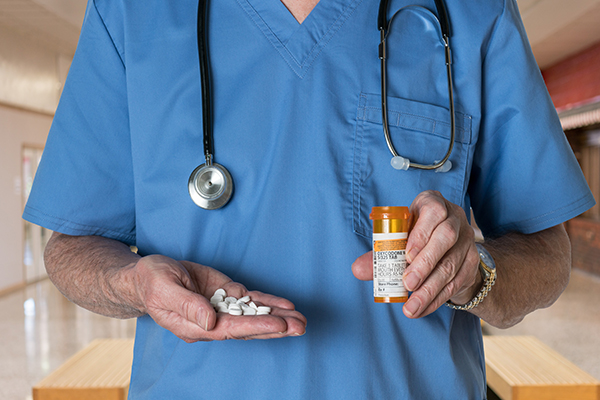Opioid abuse, addiction, and overdose have been at epidemic levels in the United States for years. This epidemic that the United States is experiencing started back in the 1990s. The pharmaceutical companies assured providers that patients wouldn’t become addicted to these medications, so more and more doctors began prescribing them at greater rates. As a result, before we knew it, there was widespread misuse, abuse, and diversion.
The Drug Overdose Epidemic: Behind the Numbers
In 2010 the second wave of opioid issues began with a rapid increase in overdose deaths due to heroin. According to the CDC “The Drug Overdose Epidemic: Behind the Numbers:
Nearly 841,000 people have died since 1999 from a drug overdose. Over 70% of drug overdose deaths in 2019 involved an opioid. Opioids are substances that work in the body’s nervous system or in specific receptors in the brain to reduce pain intensity. Overdose deaths involving opioids, including prescription opioids, heroin, and synthetic opioids (like fentanyl), have increased over six times since 1999. Overdoses involving opioids killed nearly 50,000 people in 2019, and nearly 73% of those deaths involved synthetic opioids. (CDC.GOV)
The opioid epidemic is a public health emergency that is nationwide. It impacts the health, justice, and child welfare systems.
How Are We Addressing the Opioid Epidemic?
The National Institute of Health and the U.S. Department of Health and Human Services have come together and taken steps to address this epidemic. This issue has become a public health crisis, and it is having devastating consequences on everyone. The HHS has focused its efforts on five major priorities:
- Improving access to treatment and recovery services.
- Promoting the use of overdose-reversing drugs like Narcan (naloxone).
- Strengthening the understanding of this epidemic by doing better public health surveillance.
- Providing support for cutting-edge research on addiction and pain issues.
- Advancing better practices for those receiving pain management services.
New Ways to Prevent Opioid Abuse from Re-Occurring
The National Institute of Health, a component of the U.S. Department of Health and Human Services (HHS), is also working to discover new ways to prevent opioid abuse and better treat opioid addiction and manage pain. According to the National Institute on Drug Abuse, The National Institute of Health met several pharmaceutical companies and research centers in 2017. They discussed the following topics to address this opioid epidemic:
- Safe, effective, and non-addictive strategies to manage chronic pain issues.
- New medications and technology to treat opioid addiction.
- Improved overdose prevention strategies and reversal interventions to help save lives and support recovery.
The National Institute of Health launched a program in 2018 called HEAL (The Helping to End Addiction Long-Term Initiative) or NIH HEAL Initiative. This program was put into place as an aggressive trans-agency effort to speed up scientific solutions to help end this national opioid public health crisis. The HEAL program is funding hundreds of projects throughout the United States to tackle this epidemic. Two of its main goals are improving treatment for opioid abuse and addiction and understanding, managing, and treating chronic pain issues.
Treatment Programs for Opioid Addiction at Evoke Wellness
If you or someone you love is struggling with an addiction to opioids, our addiction specialists are available around the clock to assist you. Evoke Wellness offers safe medical detoxification in a comfortable environment and with minimal discomfort. We provide opioid residential treatment in a structured environment and then provide you with after-care support to help lead you on the road to long-lasting recovery. So you don’t have to suffer any longer. Call us today, and speak to one of our addiction specialists who will help you find the right path to your sobriety. All calls are free and confidential, so what are you waiting for? Pick up the phone now.



